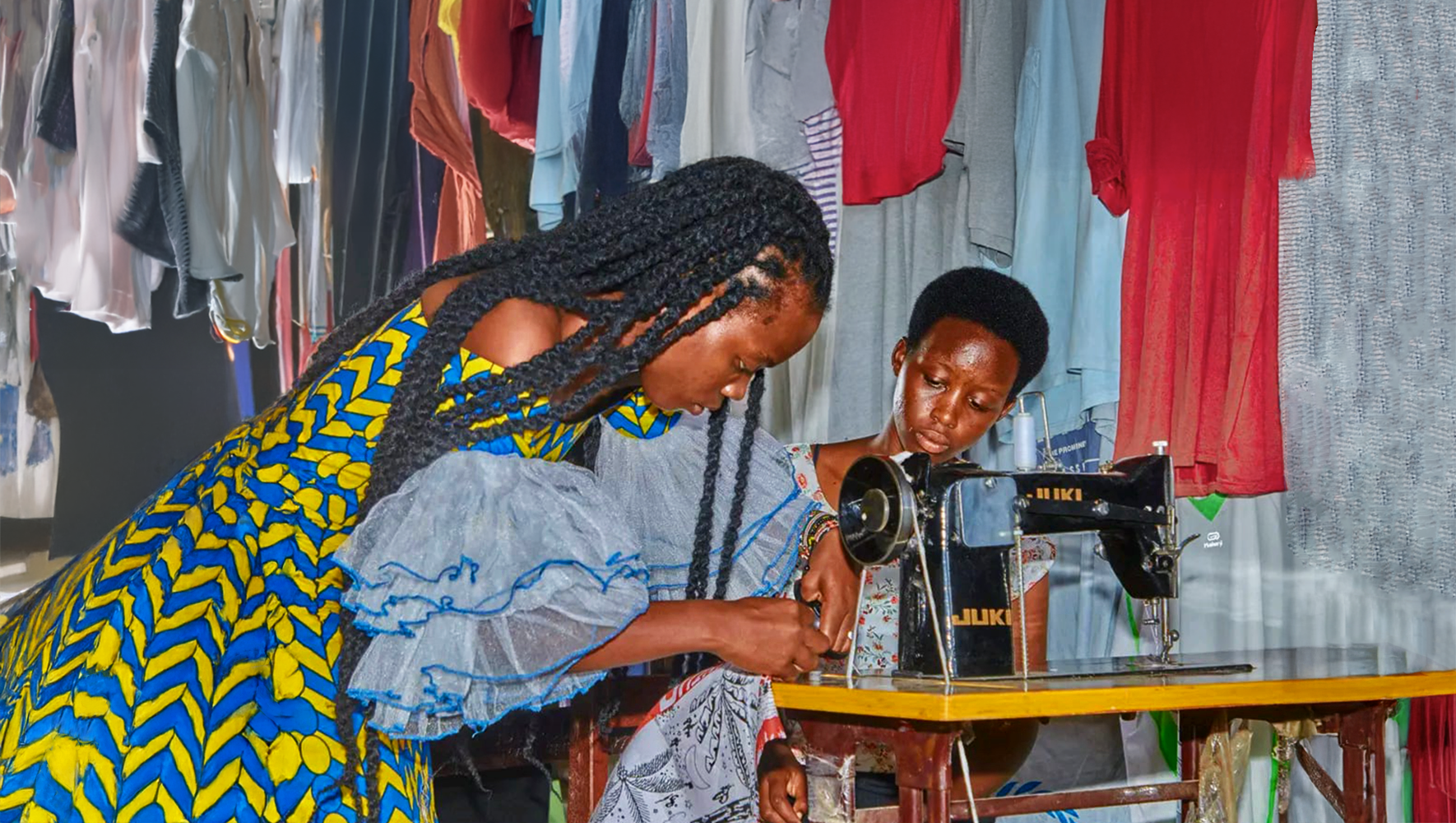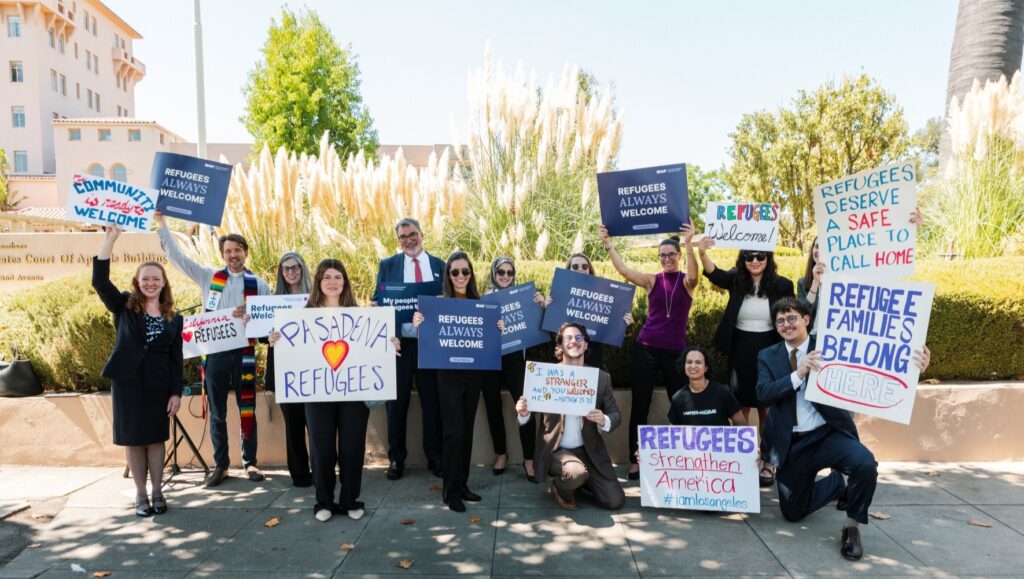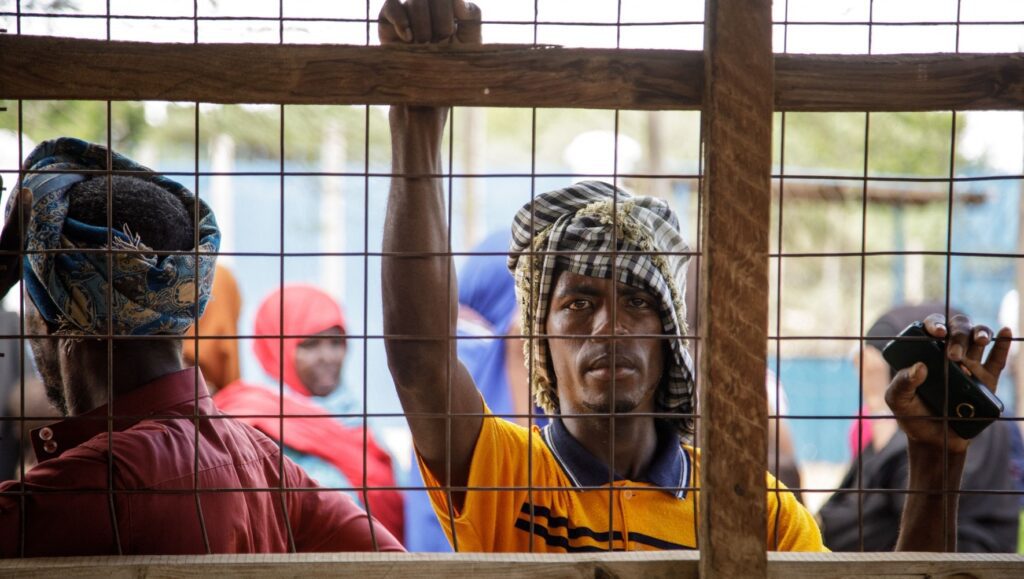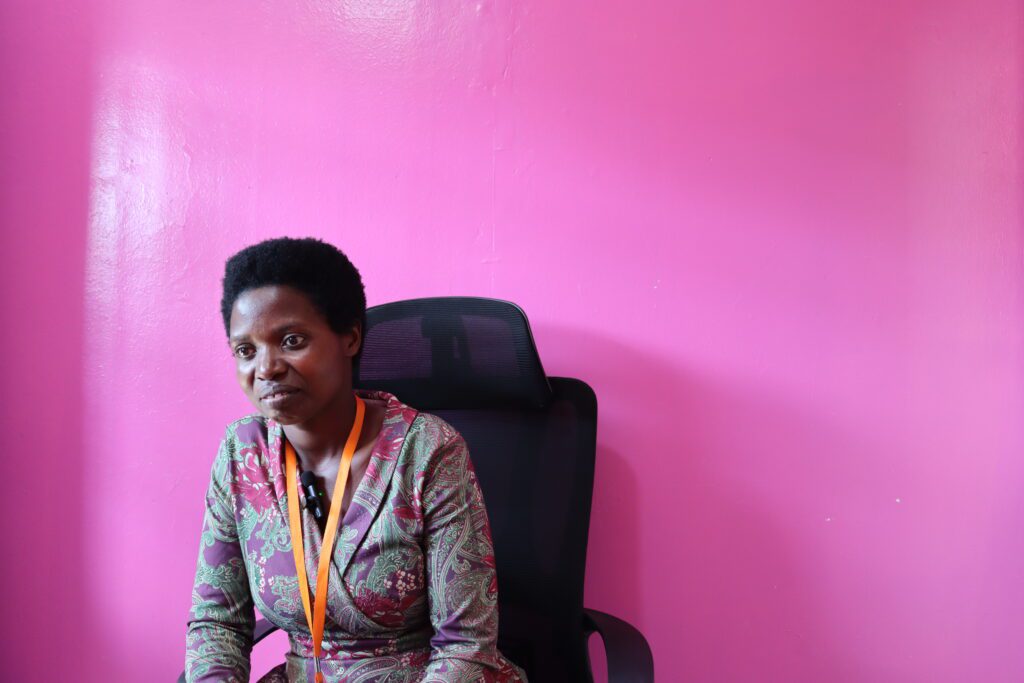
Seven years ago, at just eighteen years old, Christine fled conflict in the Democratic Republic of Congo and arrived at the Kakuma refugee camp in Kenya with her brother. She dreamed of becoming a doctor but was unable to finish high school and faced language barriers. As a refugee, Christine had to find a new way to survive and support her brother.
Christine’s life changed forever when she began training in dressmaking. She discovered a passion for sustainable fashion, which led her to experiment with transforming waste into valuable products. She began by collecting discarded milk packaging and blending it with Ankara fabric to create fashionable bags. Using her savings and a little help from local organizations, Christine bought more materials and acquired her first sewing machine.
By transforming waste into fashion, Christine not only addresses environmental issues but also promotes cultural pride and economic resilience. “Being a refugee doesn’t mean you are not intelligent or capable,” Christine said. “Refugees have skills. We only need a chance to show the world what we can do.”
Your support matters
Christine later participated in an empowerment program with HIAS partner Kalobeyei Initiative for Better Life (KI4BLI), which helped her obtain a business grant to expand her business. She purchased five more sewing machines and fabric, and used the opportunity to train other young women.
In 2023, KI4BLI was selected by HIAS Kenya to receive funding as part of a pilot program supporting local refugee-led organizations. KI4BLI used the funding to build a digital skill lab to help hundreds of young people, like Christine, succeed in business. In 2024, HIAS and KI4BLI partnered with McMaster University to launch the Reframery Virtual Incubator Program in refugee and urban settings in Kenya. The goal of the program is to help refugees and other marginalized people achieve economic sustainability by expanding access to virtual business incubators.
“Christine’s story is a powerful reminder that when refugees access economic opportunities, they don’t just transform their own lives; they uplift communities,” Doris Kawira, HIAS Kenya Country Director, said. “Through partnerships like the one with McMaster University, we see how economic empowerment can unlock endless possibilities through innovation, dignity, and hope for all.”
Being a refugee doesn’t mean you are not intelligent or capable. Refugees have skills. We only need a chance to show the world what we can do.Christine, refugee entrepreneur in Kenya
Through the digital skill lab, Christine received a tablet and internet access to attend virtual training for over seven months. She learned about financial management, social media marketing, and how to turn community problems into business opportunities. She also learned to separate her personal and business finances and developed social skills, including patience, professionalism, and effective networking.
“Through the Reframery Initiative, I realized that success isn’t instant; it is a process that requires resilience and investment in yourself,” Christine said.
Today, her eco-friendly fashion business not only sustains her household but also employs three others. She reinvests her increased earnings and continues to scale up her sustainable refugee-led business. Her journey highlights how economic empowerment initiatives can unlock the potential of refugees.
Christine dreams of growing her brand internationally and organizing events to showcase refugee innovation, especially to inspire young women and girls. “One day, I want my designs to be known worldwide and to create opportunities for others like me, so they too can live with dignity and hope,” she said.



